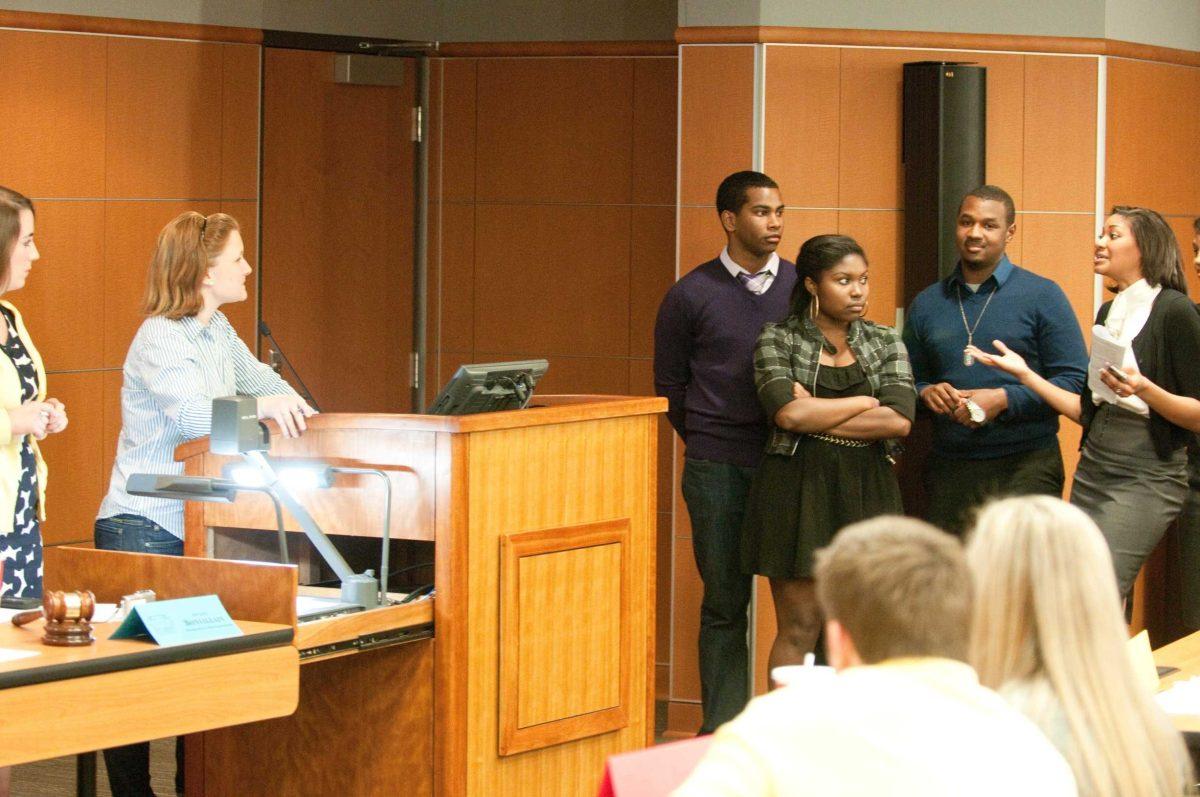Student Government Senators ranted, yelled and rallied through a two-and-a-half hour debate Wednesday night that ended in SG voting to create a black caucus.
The resolution passed on a 32-11-2 roll call vote.
Sen. Ashley Hebert, one of the authors of the bill, defended it throughout the evening.
“I never thought that by trying to help the black people at LSU, I’d be faced with so much ignorance,” Hebert said.
The debate climaxed when Sen. David Jones, College of Humanities and Social Sciences, endorsed the bill and said it will help unite the University as a campus. The senators were told white members would not be able to reach “active status” if they decided to join the black caucus.
Sen. Chris Sellers, College of Humanities and Social Sciences, told an anecdote about a man who was, in every way, similar to Jones, except he was white.
Sellers compared his exclusion from the caucus to Jones being told he couldn’t relate to this man because they were different races.
Sen. Carolyn Hill, Graduate School, responded by saying black people face different struggles from white people.
“When you wake up in the morning, you have white privilege,” Hill said, inciting gasps from the chamber. “I am a black female, and those are issues I have to deal with every day when I wake up in the morning. I can’t change who I am.”
“I can empathize because I have never felt as discriminated against until one of the authors of this bill told me I couldn’t be a member of this committee because of the color of my skin,” Sellers retorted.
Sen. Kasey Gillum, College of Agriculture, also expressed her desire to fail the resolution.
“If we need a caucus system then break it down by something other than race,” Gillum said.
Hebert emphasized the caucus would “help us represent more students on campus.”
“How can you say we’re one united student body when there’s less than 10 percent black people on campus?”
Hebert asked. “Can you recognize that forming this caucus will be a meeting of minds?”
Gillum replied by saying “it’s not our faults” there is such a small percentage of black people at the University.
Theodore Williams, a former SG member who was at the meeting as a guest, reprimanded Sen. Emily Landry, E.J. Ourso College of Business, for questioning why black people didn’t currently feel represented within SG.
“It’s not your job to question this group of students who you don’t understand. It’s your job to represent them,” Williams said.
Sen. Lane Pace, University Center for Freshman Year, addressed problems that have arisen with black caucuses on the national level.
“I don’t think because you’re black you face different problems than if you are white,” Pace said.
The debate also turned into a question of who senators are meant to represent and whether SG senators should only represent the people in their respective colleges or all students.
The authors of the bill continually repeated that they want the black caucus to open the door for other caucuses within SG, as well.
“We’ve had caucuses before, but none of them have been backed by legislation, and that’s why they fizzled out,” Jones said. “This will be used as a pilot program for us to see what works.”
_____
Contact Andrea Gallo at agallo@lsureveille.com
Black caucus emerges in tense session
March 3, 2011





